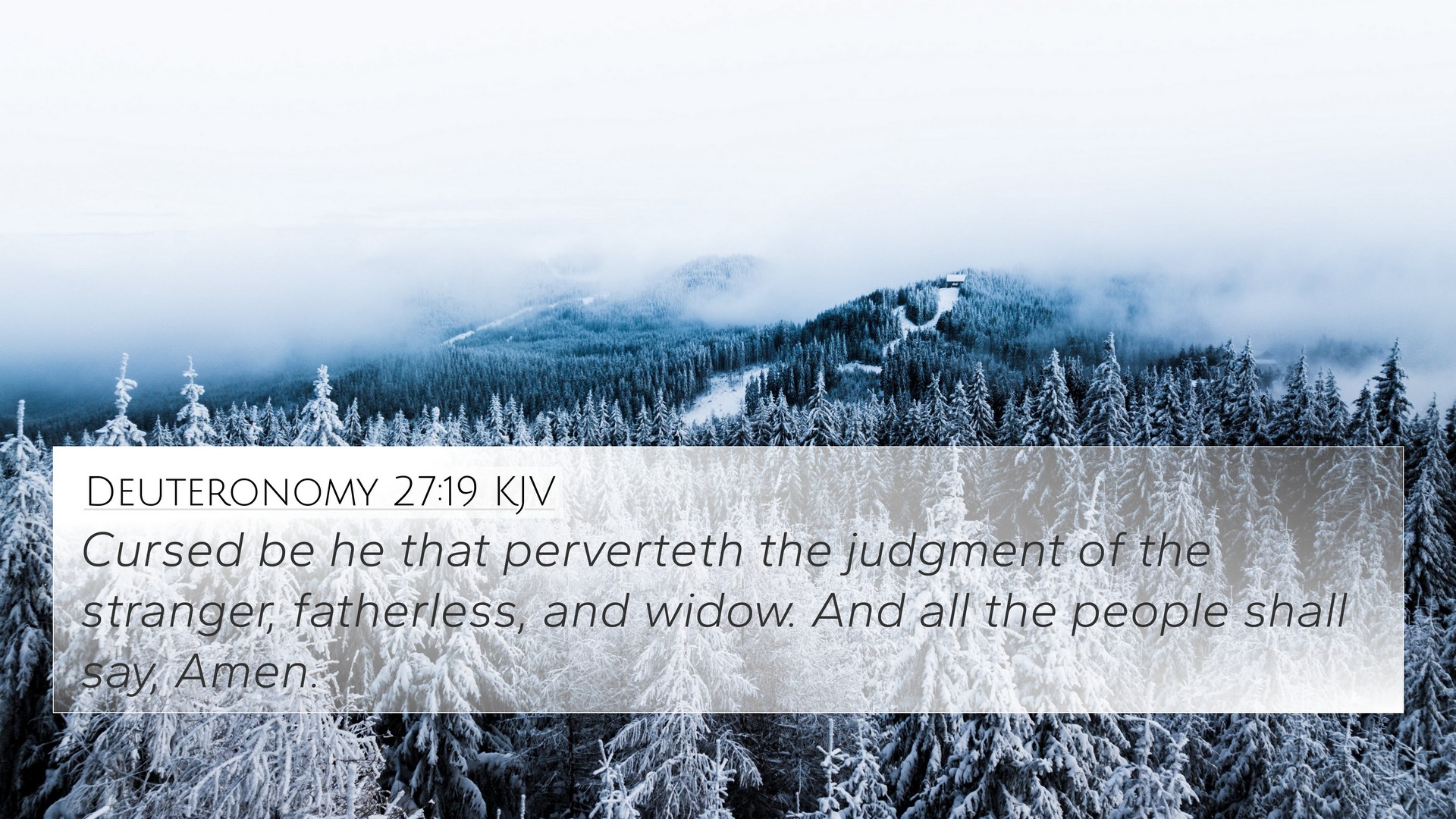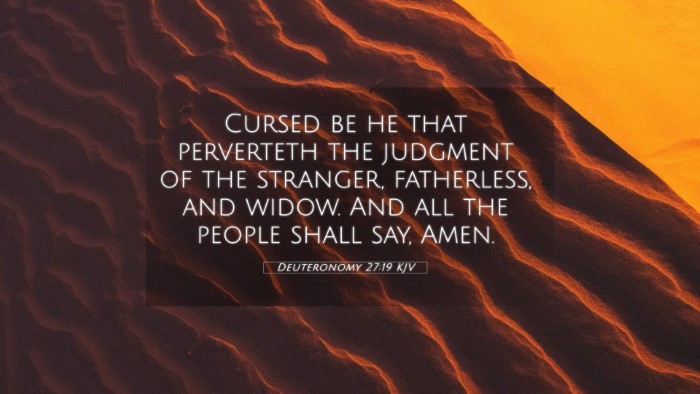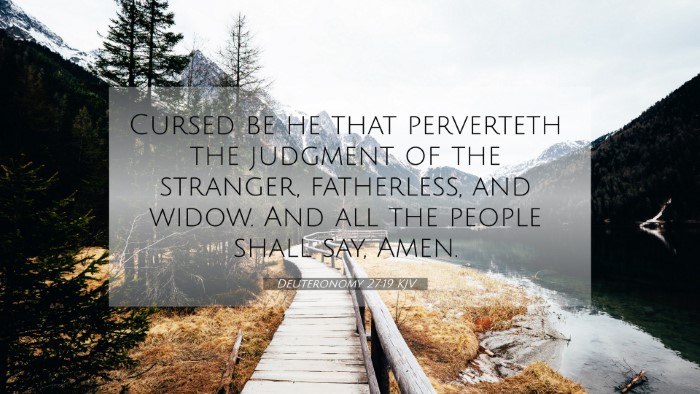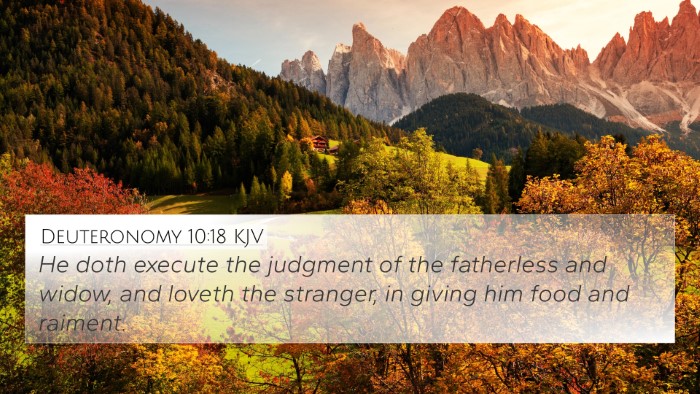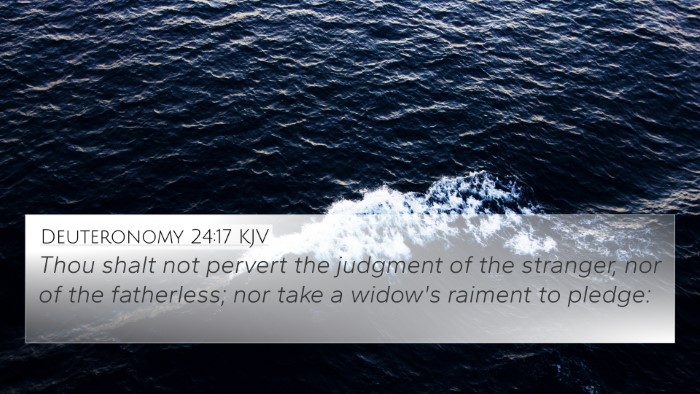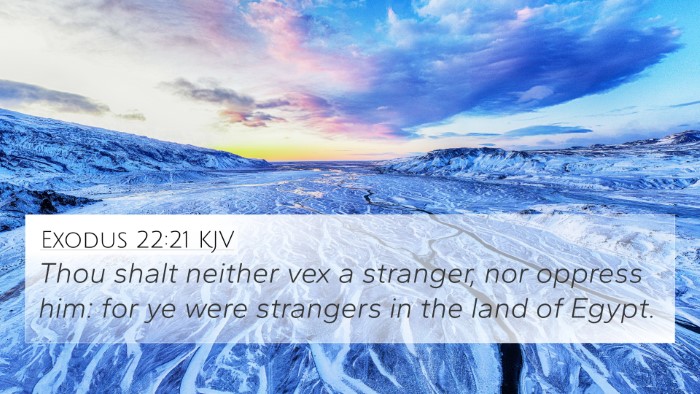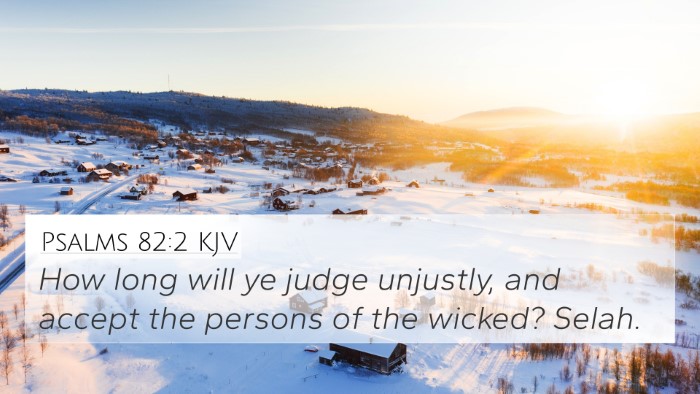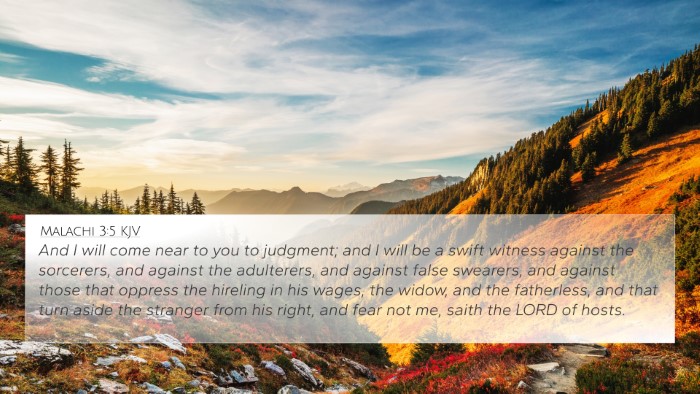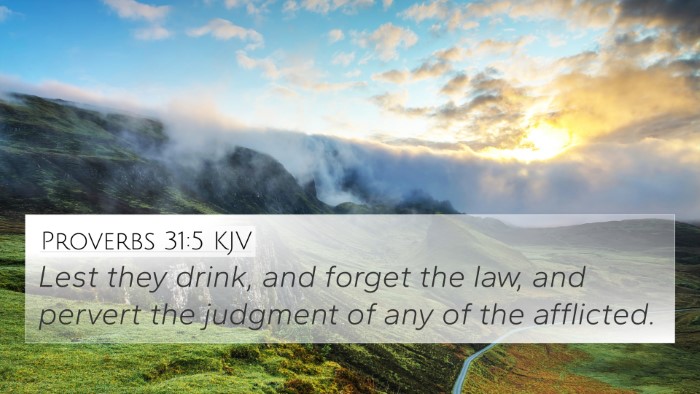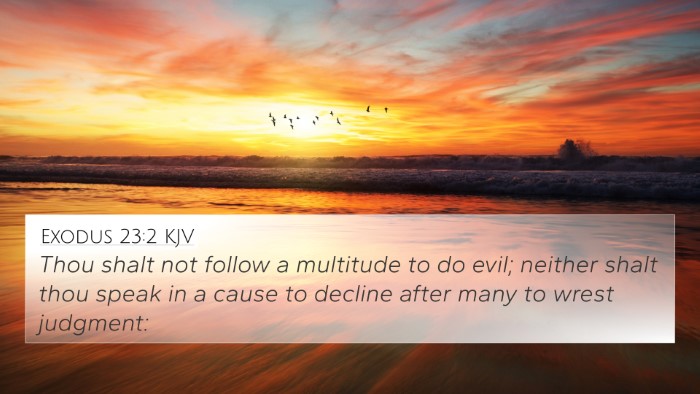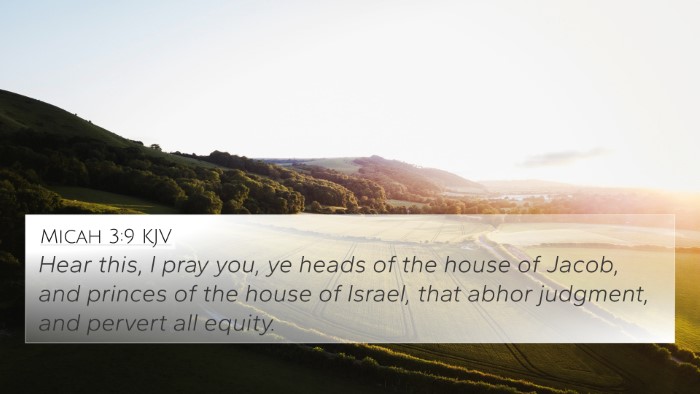Understanding Deuteronomy 27:19
Bible Verse (Deuteronomy 27:19): "Cursed be he that perverteth the judgment of the stranger, fatherless, and widow. And all the people shall say, Amen."
Overview
Deuteronomy 27:19 deals with the topic of justice and the protection of vulnerable members of society—specifically, strangers, orphans, and widows. This verse causes us to reflect on God’s concern for social justice and the severe consequences that befall those who exploit the defenseless.
Commentary Summary
Insights from Matthew Henry:
Matthew Henry emphasizes that God's law requires justice not only for the rich and powerful, but extends to the most vulnerable. He notes the seriousness of perverting justice—especially regarding issues that affect the marginalized in society. Henry asserts that the phrase "cursed be he" underlines the weight of divine judgment on acts of injustice.
Insights from Albert Barnes:
Albert Barnes focuses on the moral implications in this passage, stressing that societal judgment should maintain integrity for all individuals regardless of their status. He points out that protecting orphans, widows, and strangers is a fundamental principle that reflects God's justice. Barnes argues that neglecting these responsibilities can lead to divine curses, which are a reminder of the importance of fairness in our dealings.
Insights from Adam Clarke:
Adam Clarke expands on the cultural context, noting that in ancient Israel, the widow and orphan had no economic protection. Clarke emphasizes the theological significance of God's command to protect these groups, linking it to His character as a protector and defender of the oppressed. He interprets the communal response of "Amen" as a collective acknowledgment of the need for social justice.
Bible Cross-References
- Exodus 22:21-24: A commandment against mistreating strangers and vulnerable individuals.
- James 1:27: A New Testament affirmation of pure religion involving care for orphans and widows.
- Psalms 146:9: The Lord watches over the sojourners, orphans, and widows.
- Isaiah 1:17: Call to seek justice, correct oppression, and defend the cause of the fatherless and widow.
- Malachi 3:5: God promises to be a swift witness against those who oppress the vulnerable.
- Luke 18:1-8: The parable of the unjust judge highlights God's advocacy for justice.
- Proverbs 31:8-9: Addresses the need to speak up for those who cannot speak for themselves.
Thematic Connections
The themes found in Deuteronomy 27:19 extend throughout the Scriptures, establishing a divine expectation for social justice. These connections can be explored in various ways:
-
Old Testament Ethical Standards: The care for the marginalized is established as a foundational element in the Law, reverberating through both the Prophets and Wisdom Literature.
-
New Testament Fulfillment: Jesus’ teachings and actions frequently highlight the plight of the marginalized, reinforcing the importance of justice as understood in Deuteronomy.
-
Christian Ethical Responsibility: The Church is called to embody these principles through practical actions in today's society, relating scripture to community engagement.
Applications in Cross-Referencing
For those studying the Bible, engaging in cross-referencing can provide richer insights into the interconnectedness of biblical texts:
- Tools for Bible Cross-Referencing: Utilize a Bible concordance or cross-reference guide to identify related verses.
- Finding Cross-References: Search for keywords like "stranger," "widow," and "fatherless" to uncover related scriptures across different books.
- Understanding Themes: Recognize recurring themes through comparative Bible verse analysis; for example, justice and mercy appear frequently throughout the Old and New Testaments.
Conclusion
In conclusion, Deuteronomy 27:19 serves as a potent reminder of God’s commitment to justice, particularly for those who are often overlooked by society. The inter-Biblical dialogue cultivated by this verse encourages believers to uphold these principles of justice as integral to their faith. Through careful study and cross-referencing, we can deepen our understanding and application of these timeless truths in our lives today.
